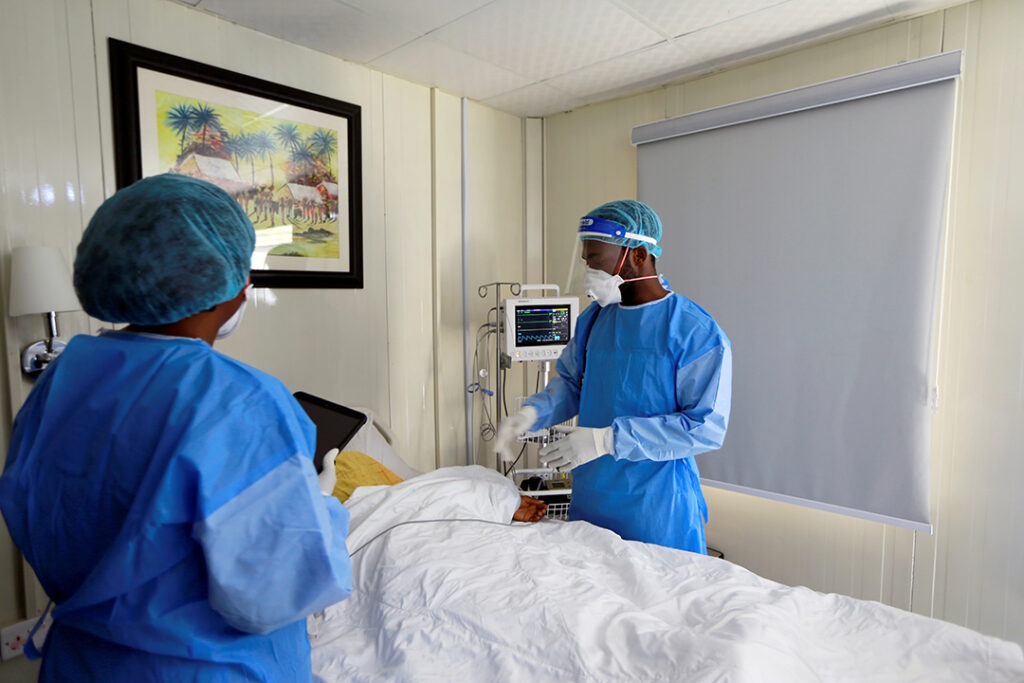ADF STAFF
For some people who recover from COVID-19, the fight to regain their health is just beginning.
Months after their bodies have fended off the virus, some people continue to have a variety of symptoms, from fatigue and “brain fog” to problems with their heart, eyes, kidneys and other internal organs. Some people report shortness of breath, while others develop a buzzing or burning sensation in their skin. Symptoms can fade one day and flare up the next.
They’ve joined a worldwide group: They’re the COVID-19 long-haulers.
“We don’t really have a clear scientific explanation as to why it occurs,” Dr. Mark Holliday, a general practitioner based in Johannesburg, reported in a video posted to South Africa’s national COVID-19 information portal. “In general, there’s a trend in my patients of getting better and better. But it can take five or six months.”
A study of some of COVID-19’s first victims in Wuhan, China, found that people reported a range of sometimes debilitating symptoms long after they were released from the hospital. Three-quarters of the 1,733 study participants still had at least one symptom more than six months after recovering.
According to the study published in the British medical journal The Lancet, muscle weakness and sleep problems were the most common issues for the long haulers, followed by anxiety and depression.
Doctors still are trying to understand the phenomenon. In general, they consider long-haulers to be people who continue to have symptoms at least four weeks after they recover from the primary infection, according to a study in the South African Medical Journal.
People develop long-hauler symptoms regardless of whether they spent time in the hospital or had a mild infection. Young people (ages 18 to 34) can become long-haulers, though they do so at about half the rate of people age 50 or older. Even a mild case of COVID-19 can reduce a person’s cognitive abilities, according to the study’s authors.
In Africa, where the median age is just under 20, nearly 3 million people have recovered from COVID-19, according to the Africa Centres for Disease Control and Prevention.
“Although long-COVID may be short on evidence for optimal management, this rapidly evolving clinical problem has important public health considerations as the pandemic continues apace,” the authors concluded.
They added that long-haul symptoms need to be studied more in South Africa because so many people who contract COVID-19 have preexisting health issues such as HIV, tuberculosis or diabetes. Long-haulers may require greater rehabilitation to manage their symptoms or fully recover, they say.
South Africa remains the continent’s hot spot for COVID-19 infections, with 40% of the 3.5 million cases reported since early 2020. A more infectious virus variant discovered in South Africa last fall has spread rapidly across the country and region.
Speaking with the BBC World Service, Catherine from South Africa said she originally felt like she was the only person suffering her long-haul symptoms. Eventually, she found other people who were having the same experience.
“I was so grateful that I wasn’t going mad, because so many people around me who’ve had COVID have recovered well,” she said. “I feel like I don’t know if I’ll ever be able to go back to my pre-COVID state.”
Catherine added that she has seen a stigma associated with people who still have symptoms after recovering from COVID-19.
“There’s a mental and emotional strain,” she said.
Dr. Holliday noted that the symptoms can be dismissed as malingering by employers and others who don’t understand the plight of long-haulers.
“These people really battle with their symptoms, and it takes them a while to get better,” he said.

